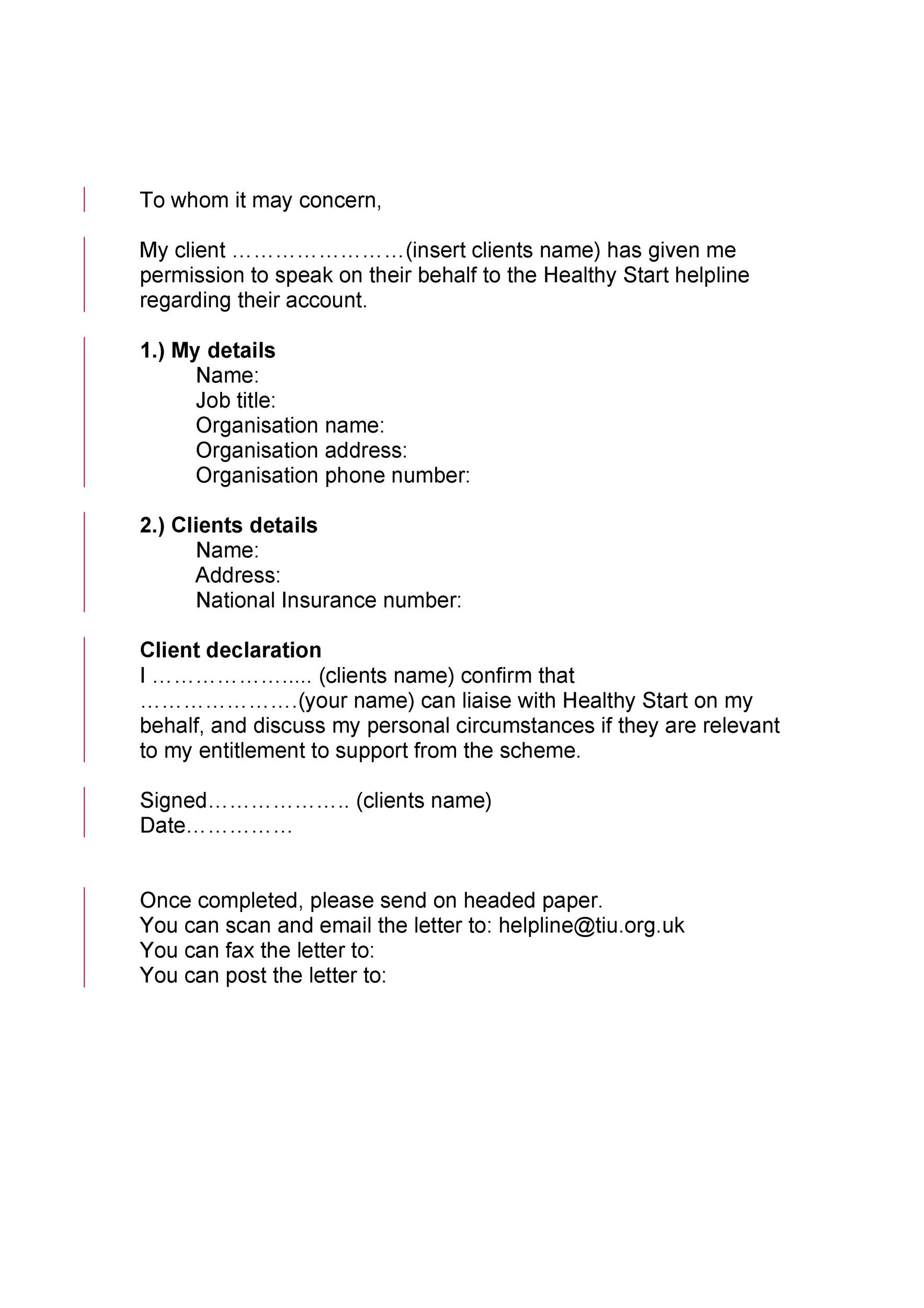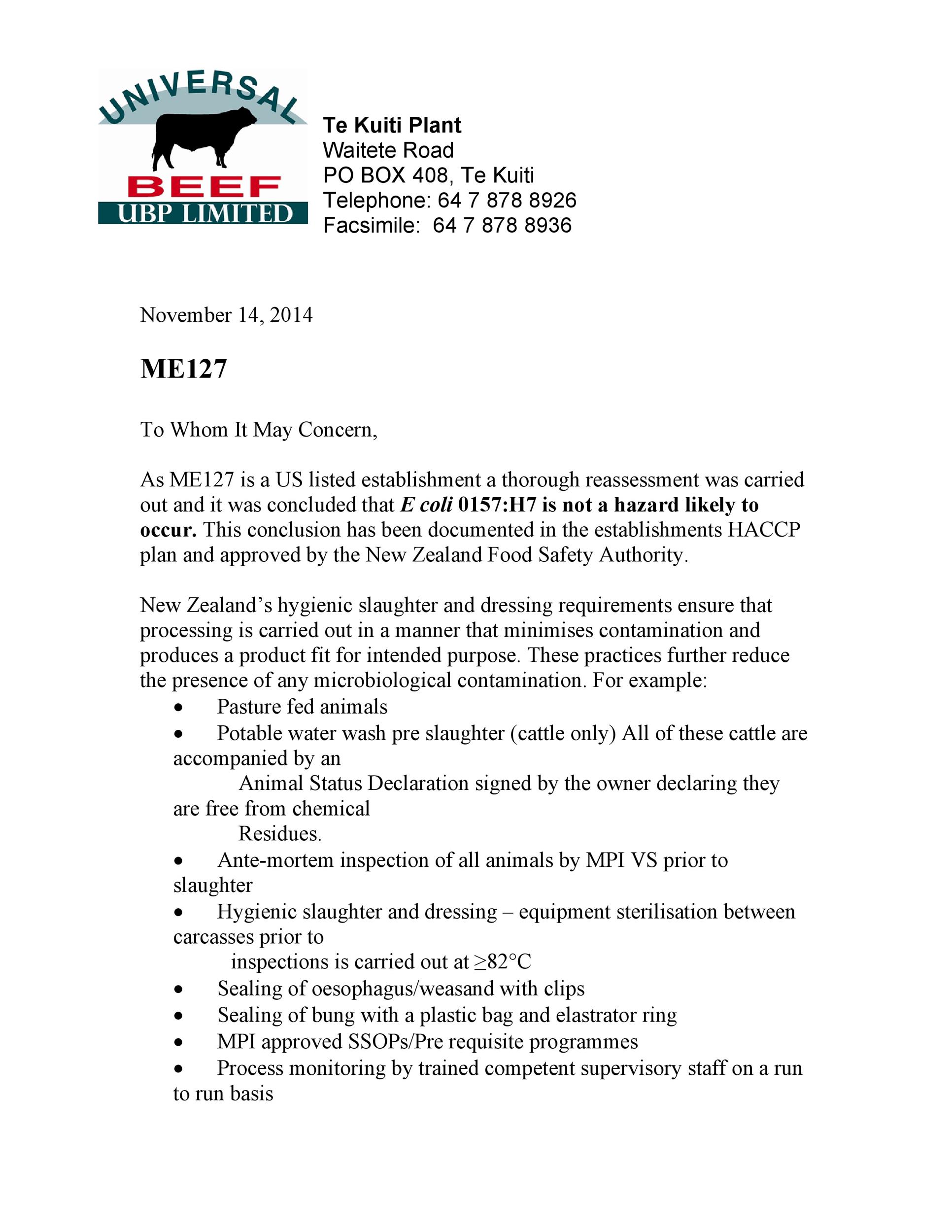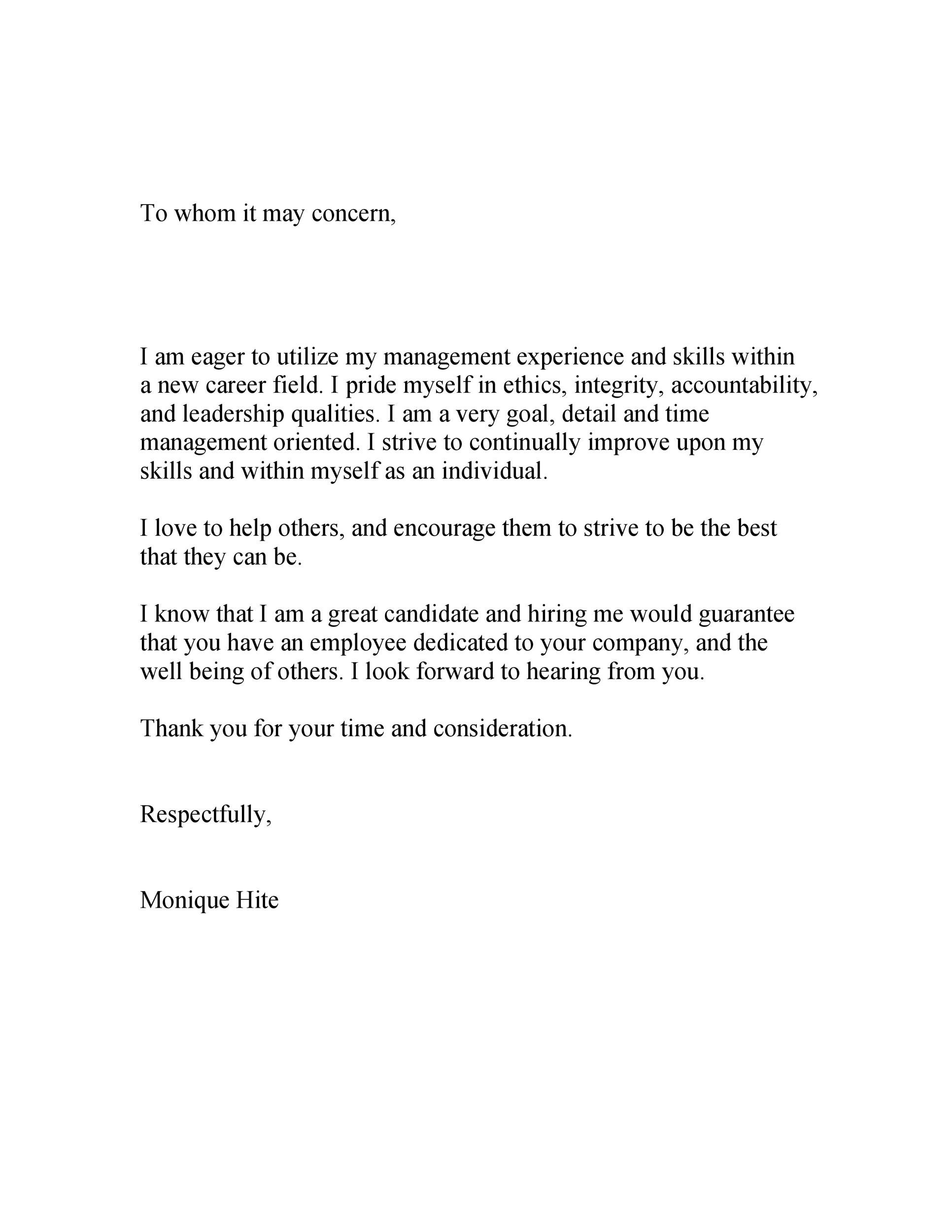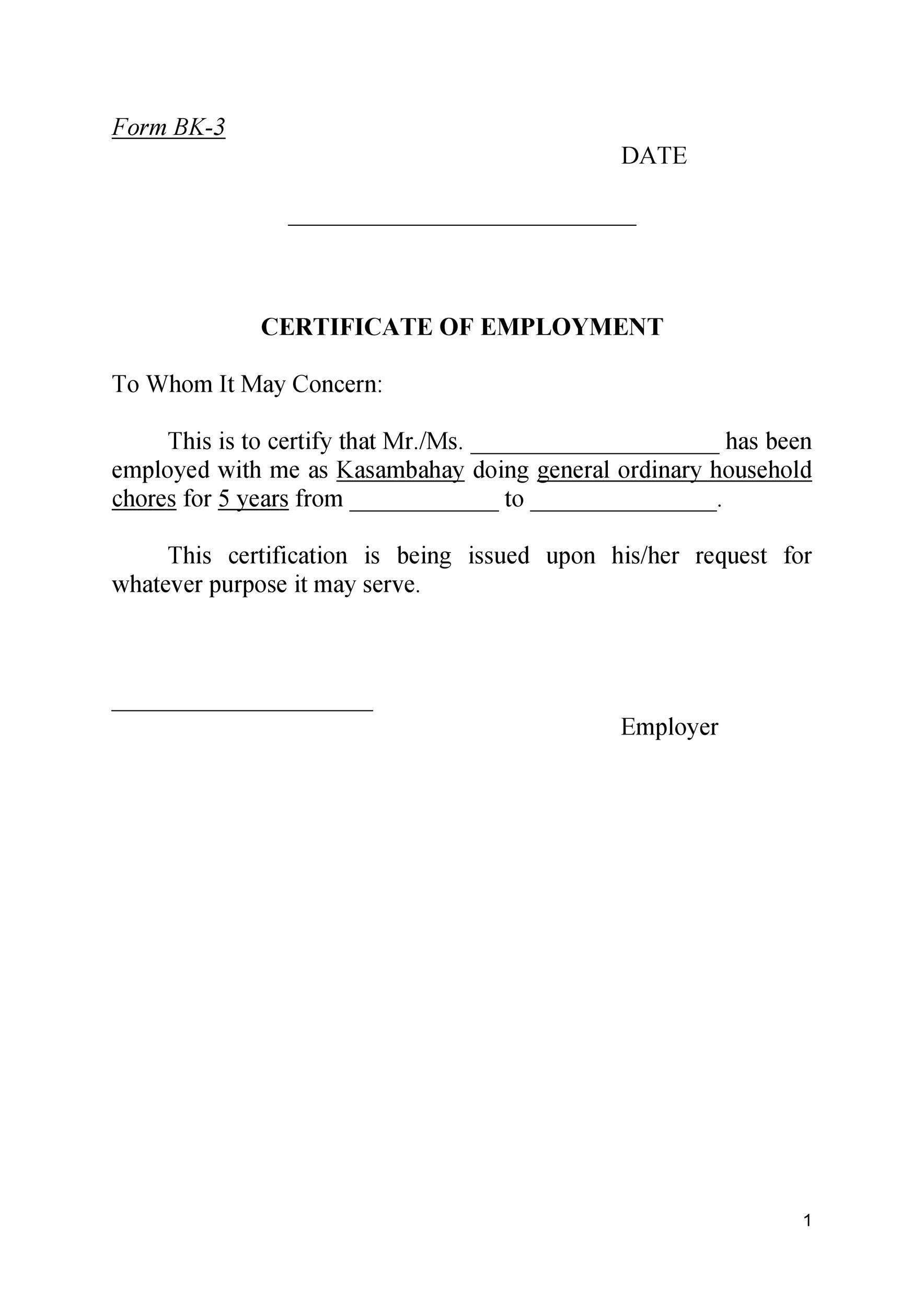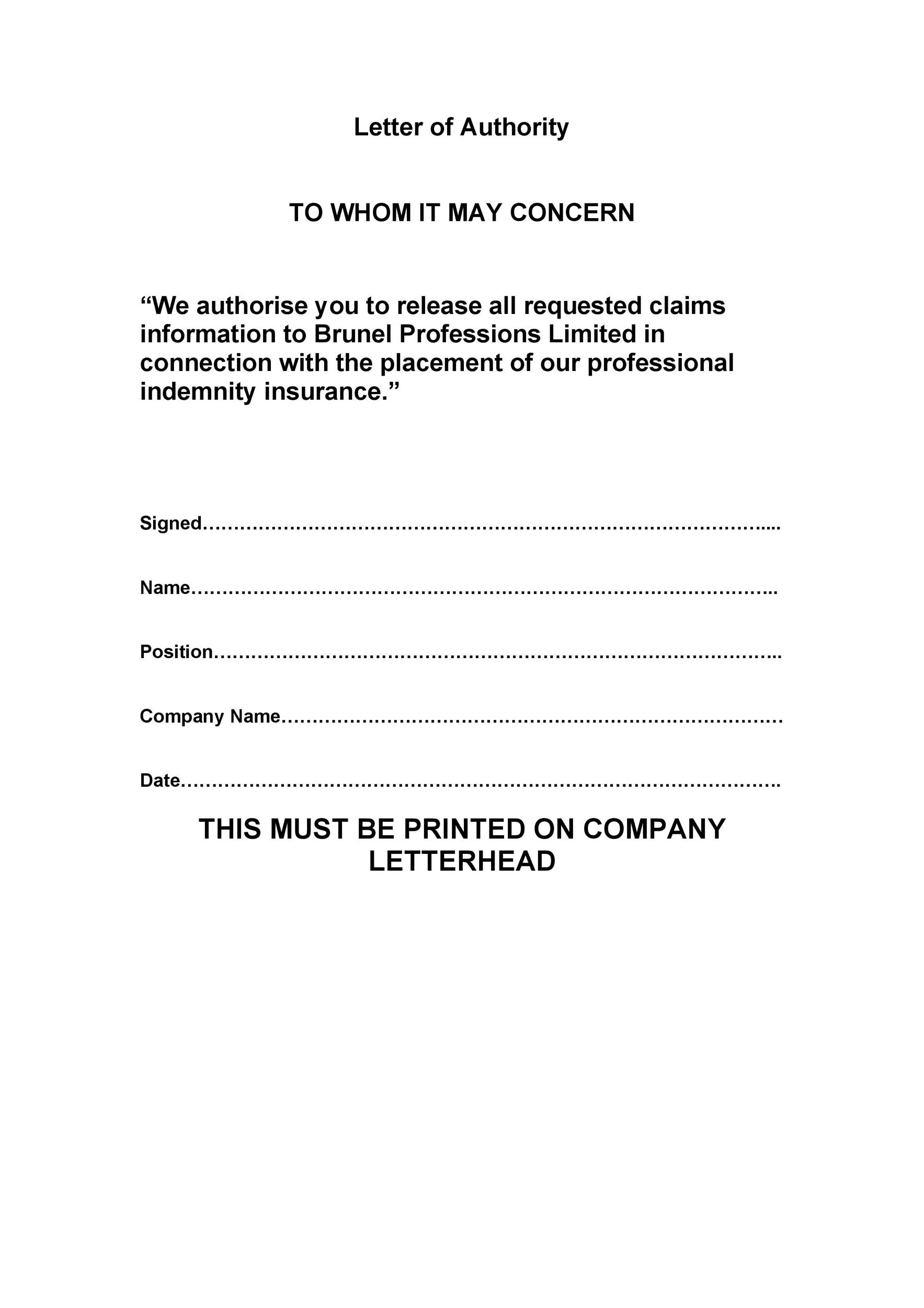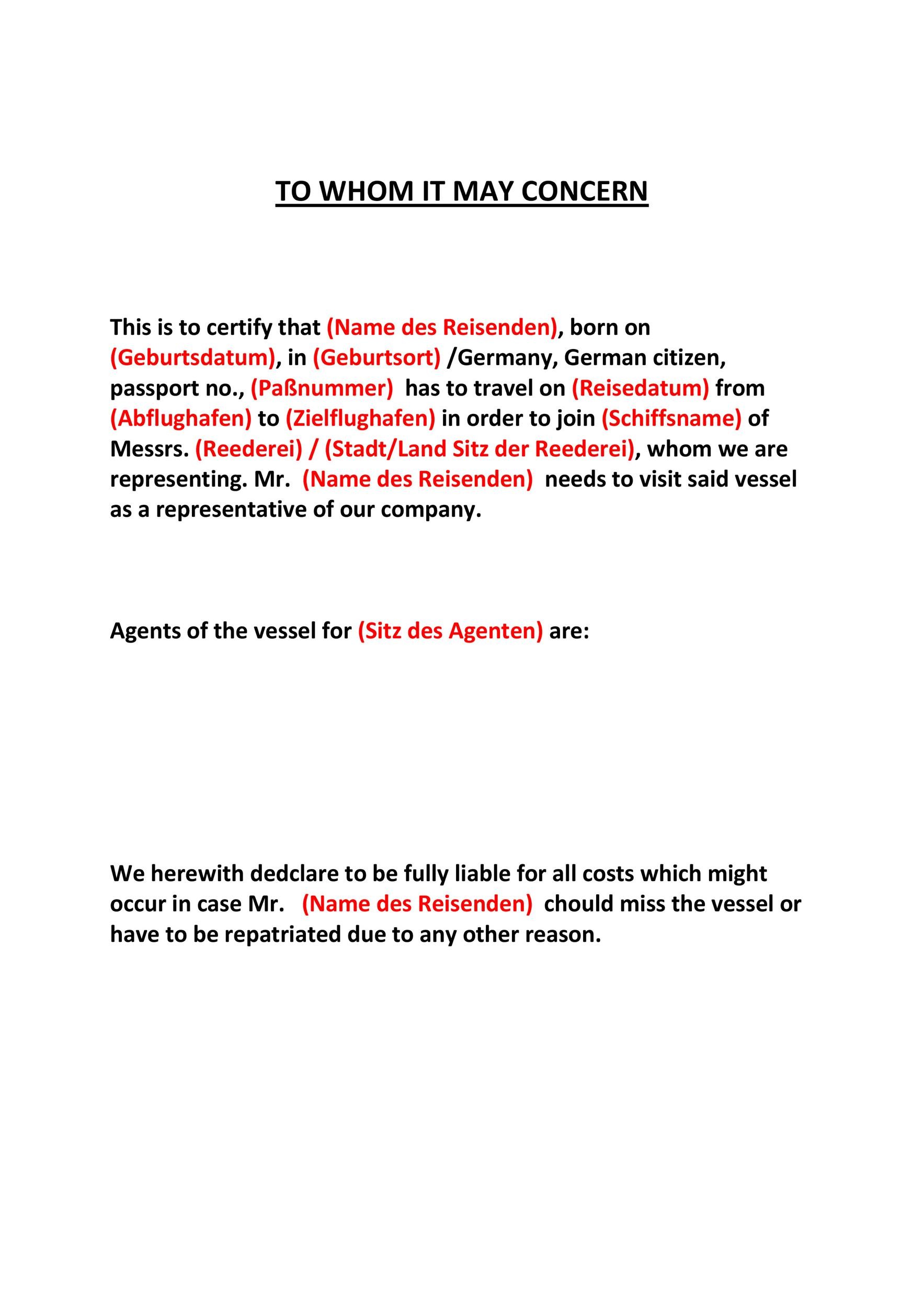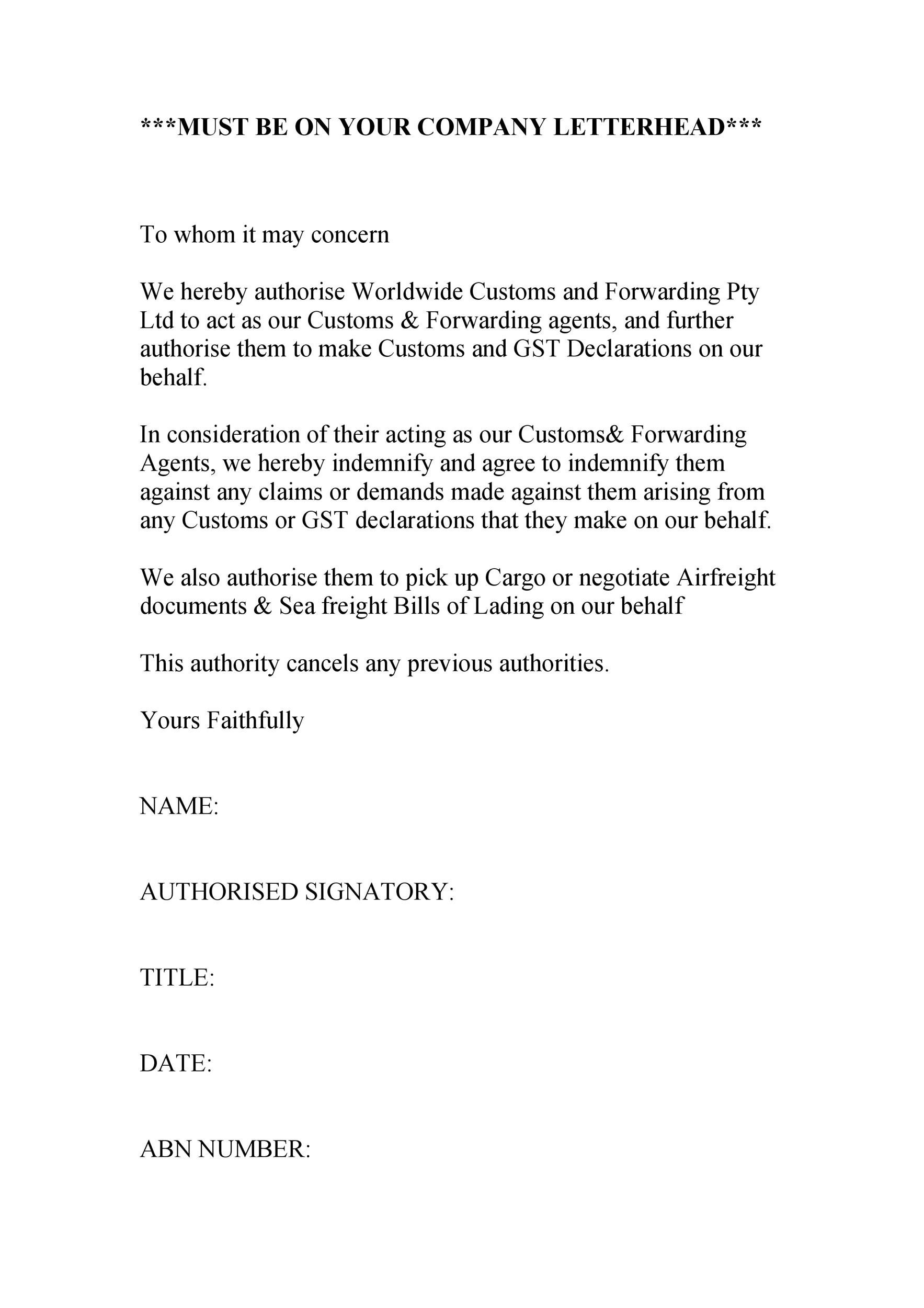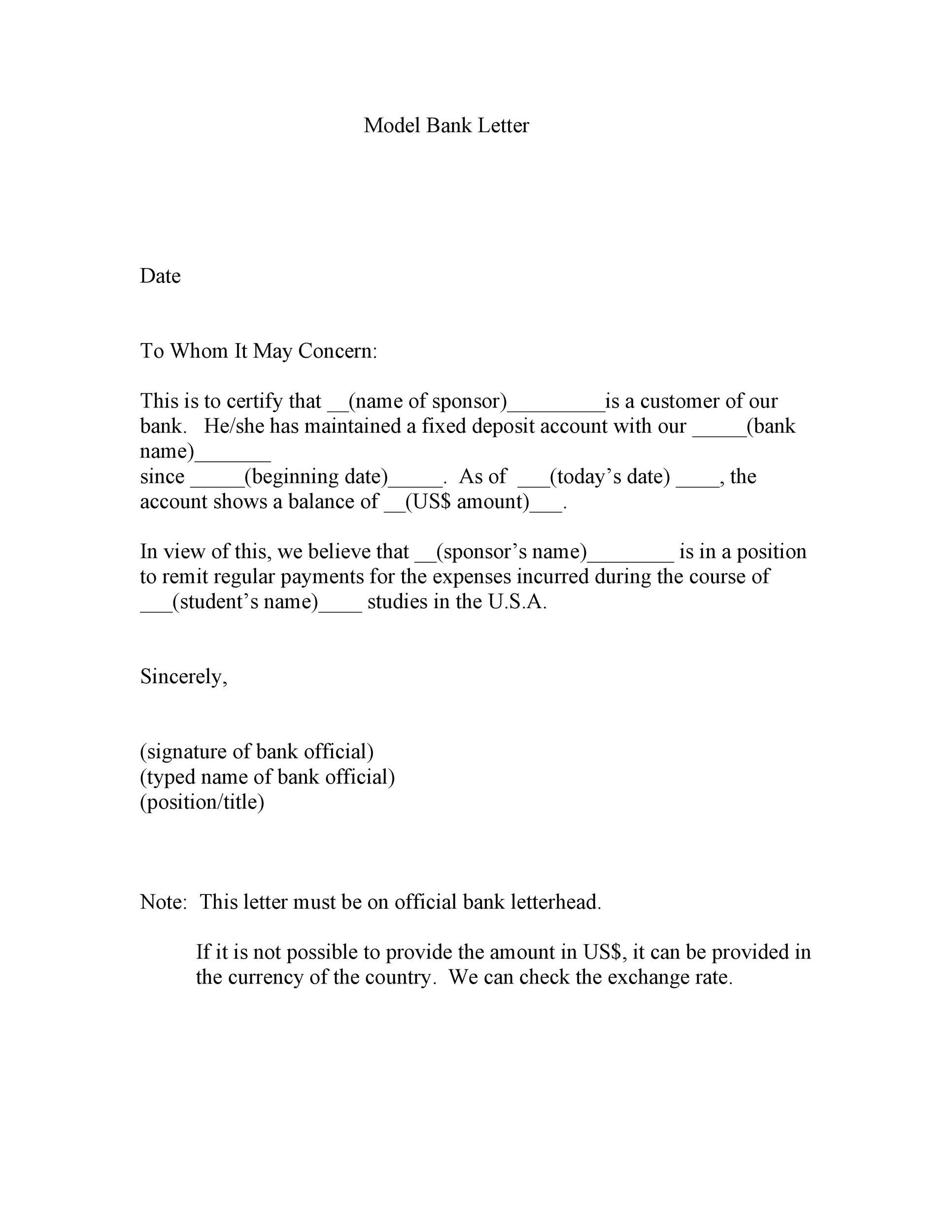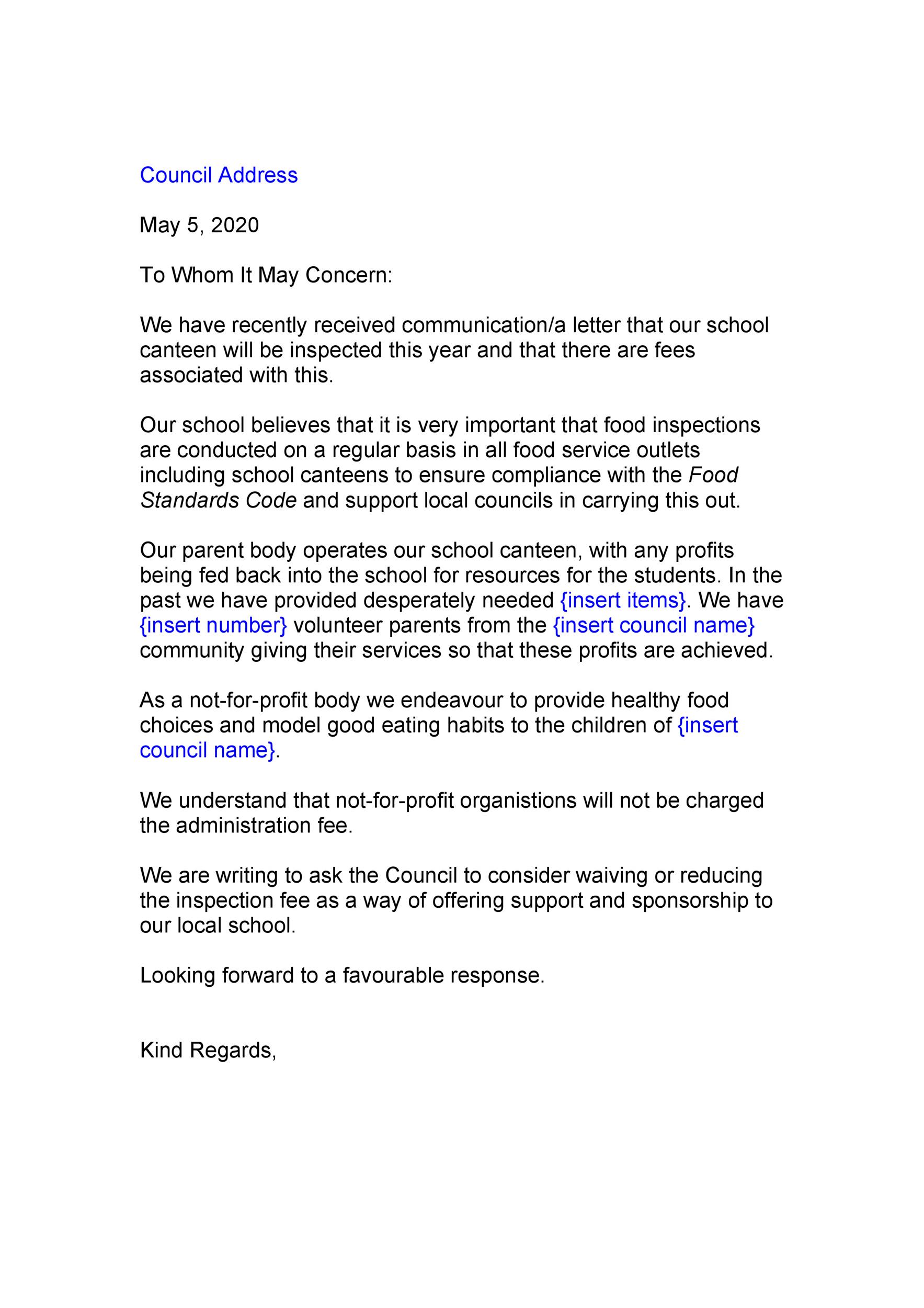To Whom It May Concern Template
To Whom It May Concern Template - To whom it may concern meaning. The generic salutation is suitable for formal invitations because you might not know the exact contact person but. It functions as a generic salutation that can be addressed to anybody reading the letter. Web “to whom it may concern” is ok when you’re not trying to impress the reader of the letter or email. Web if you're writing a complaint letter to a company and you don't know who will be reading it, to whom it may concern is appropriate. Web to whom it may concern is a general way to address correspondence to a recipient whose name is unknown. The most suitable greeting on a cover letter is “dear” followed by the recipient’s title and last name. Use this phrase when you do not know the name or gender of the person to whom your letter or email is directed. To whom it may concern has been around so long that is has almost become a type of cover letter format. It is acceptable in formal or professional correspondence. It ensures that your letter will be read by the person responsible for handling such matters, without making it seem like you didn't do your homework. Web if you're writing a complaint letter to a company and you don't know who will be reading it, to whom it may concern is appropriate. So if you find out that the hiring. Web “to whom it may concern” is ok when you’re not trying to impress the reader of the letter or email. Web “to whom it may concern” is a greeting used at the beginning of a letter or email when the identity of the reader is unknown. This guide will provide a template for writing a letter with this salutation, an example using the template, and a variation of the template for different contexts. It's a formal choice of words that hasn't dated well and comes off as impersonal, tired, and potentially irate or desperate. Web “to whom it may concern” is a salutation that is used when you do not know who you are to address your formal letter. Target your cover letter with a name. I will also discuss situations when to use them and when not to. Web to whom it may concern is a formal greeting that can be used to start an email or letter addressed to someone whose name you don’t know or to no one in particular. Web in this post, let me share some of the best “to whom it may concern” sample template examples of how to use them correctly in your email or letter. If you are reaching out to a large company with a complex organizational structure and aren’t sure who the proper point of contact is, you may need to submit a message through a message form on the company’s website or sending an email to a general address such as. There are better options in most contexts. Easily editable and customizable, it's available for download in. Ideal for various formal communications, this template simplifies writing official letters for diverse needs. For example, you’re sending out a letter of complaint because you’re unhappy about the service you’ve received, or one of your colleagues has asked you to provide a letter of recommendation for them. Web “to whom it may concern” is a formal greeting used in professional correspondence when you are uncertain of the recipient’s name or position. If you’re sending a letter to an unknown entity in some department, for example, at least label it to “dear [department name].” Web we’ll take a look at whether you should use to whom it may concern, explore a few alternatives, and talk about the only type of correspondence where this greeting is still acceptable. If you’re sending a letter to an unknown entity in some department, for example, at least label it to “dear [department name].” If you do not know the name of the person that handles the particular issue you are writing about, you use this salutation. Web the phrase “to whom it may concern” is a traditional way to address correspondence. Web to whom it may concern is a general way to address correspondence to a recipient whose name is unknown. It is acceptable in formal or professional correspondence. The most suitable greeting on a cover letter is “dear” followed by the recipient’s title and last name. We have used this phrase as the usual greeting in our letter when addressing. The generic salutation is suitable for formal invitations because you might not know the exact contact person but. Ideal for various formal communications, this template simplifies writing official letters for diverse needs. Web to whom it may concern is a formal salutation used in letters and documents when the identity of the recipient is unknown. To whom it may concern. It's a formal choice of words that hasn't dated well and comes off as impersonal, tired, and potentially irate or desperate. Easily editable and customizable, it's available for download in. So if you find out that the hiring. It ensures that your letter will be read by the person responsible for handling such matters, without making it seem like you. Target your cover letter with a name. So if you find out that the hiring. It's a formal choice of words that hasn't dated well and comes off as impersonal, tired, and potentially irate or desperate. Web using “to whom it may concern” is basically admitting that you have no idea who this letter will concern — and that’s concerning. Web “to whom it may concern” is a conventional formal generic salutation used in letters or correspondence where the name and title of the addressee or recipient are unknown. The generic salutation is suitable for formal invitations because you might not know the exact contact person but. Reaching out to a large company or new department. Ideal for various formal. It is generally considered a professional way to begin a cover letter or an email for business correspondence. Web “to whom it may concern” is a formal greeting used in professional correspondence when you are uncertain of the recipient’s name or position. Web to whom it may concern is a formal greeting that can be used to start an email. Web to whom it may concern is a formal salutation used in letters and documents when the identity of the recipient is unknown. Web “to whom it may concern” is a salutation that is used when you do not know who you are to address your formal letter. Ideal for various formal communications, this template simplifies writing official letters for. To whom it may concern is a salutation for a letter or email, most commonly employed when the writer does not know the recipient’s name. Web “to whom it may concern” is a formal greeting used in professional correspondence when you are uncertain of the recipient’s name or position. This guide will provide a template for writing a letter with. Web “to whom it may concern” is a conventional formal generic salutation used in letters or correspondence where the name and title of the addressee or recipient are unknown. Web the phrase “to whom it may concern” is a traditional way to address correspondence when you don’t know the specific name of the recipient. Use this phrase when you do. Web the phrase “to whom it may concern” is a traditional way to address correspondence when you don’t know the specific name of the recipient. Web to whom it may concern is a formal salutation used in letters and documents when the identity of the recipient is unknown. For example, you’re sending out a letter of complaint because you’re unhappy about the service you’ve received, or one of your colleagues has asked you to provide a letter of recommendation for them. To whom it may concern meaning. Web discover the perfect blend of professionalism and clarity in our expertly crafted 'to whom it may concern' letter sample. Web “to whom it may concern” is a versatile salutation used in formal letters and emails when the recipient’s identity is unknown or when addressing a general audience. If you’re sending a letter to an unknown entity in some department, for example, at least label it to “dear [department name].” Ideal for various formal communications, this template simplifies writing official letters for diverse needs. To whom it may concern is a salutation for a letter or email, most commonly employed when the writer does not know the recipient’s name. Web we’ll take a look at whether you should use to whom it may concern, explore a few alternatives, and talk about the only type of correspondence where this greeting is still acceptable. This comprehensive guide offers practical examples and insights into crafting effective communications with this traditional greeting. If you are reaching out to a large company with a complex organizational structure and aren’t sure who the proper point of contact is, you may need to submit a message through a message form on the company’s website or sending an email to a general address such as. Web get insights on structure, tone, and customization to make your ‘to whom it may concern’ letters more engaging and appropriate for any professional scenario. Target your cover letter with a name. Web “to whom it may concern” is a formal greeting used in professional correspondence when you are uncertain of the recipient’s name or position. So if you find out that the hiring.50 To Whom It May Concern Letter & Email Templates ᐅ TemplateLab
50 To Whom It May Concern Letter & Email Templates ᐅ TemplateLab
50 To Whom It May Concern Letter & Email Templates ᐅ TemplateLab
50 To Whom It May Concern Letter & Email Templates ᐅ TemplateLab
50 To Whom It May Concern Letter & Email Templates ᐅ TemplateLab
50 To Whom It May Concern Letter & Email Templates ᐅ TemplateLab
50 To Whom It May Concern Letter & Email Templates ᐅ TemplateLab
50 To Whom It May Concern Letter & Email Templates ᐅ TemplateLab
50 To Whom It May Concern Letter & Email Templates ᐅ TemplateLab
50 To Whom It May Concern Letter & Email Templates ᐅ TemplateLab
Reaching Out To A Large Company Or New Department.
Web “To Whom It May Concern” Is A Greeting Used At The Beginning Of A Letter Or Email When The Identity Of The Reader Is Unknown.
The Most Suitable Greeting On A Cover Letter Is “Dear” Followed By The Recipient’s Title And Last Name.
Web 50 To Whom It May Concern Letter & Email Templates.
Related Post:
